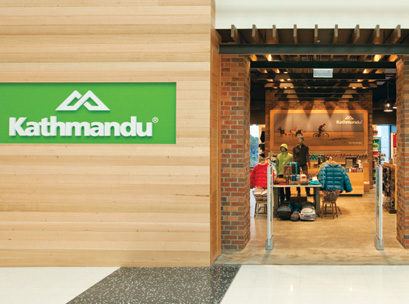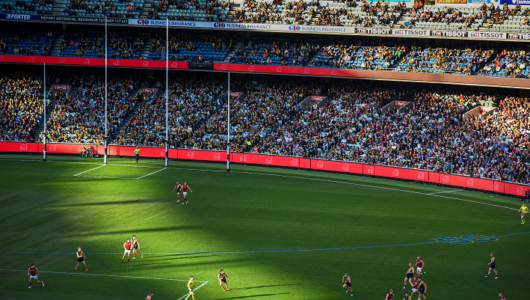 For years, retailers have been referencing the fact that today’s consumers prefer to buy from socially and environmentally-conscious brands. A widely cited 2015 poll from Nielsen found that 66 per cent of global consumers, and 73 per cent of millennials, are willing to pay more for sustainable goods. But new research from Kathmandu has cast doubt on this conventional wisdom.
For years, retailers have been referencing the fact that today’s consumers prefer to buy from socially and environmentally-conscious brands. A widely cited 2015 poll from Nielsen found that 66 per cent of global consumers, and 73 per cent of millennials, are willing to pay more for sustainable goods. But new research from Kathmandu has cast doubt on this conventional wisdom.
In a recent survey of 1000 Australian consumers, the outdoor gear and clothing retailer found that one in two shoppers do not consider the social, environmental and ethical impacts of the fashion industry when purchasing clothing items. And a whopping 97 per cent of those surveyed had not purchased from a sustainable, eco-fashion brand in the 12 months prior, or at least they had not intentionally done so.
To be fair, this is not the first time consumers’ commitment to the planet has been questioned. For every article about the rise of sustainable brands in recent years, there have been a handful of people pointing out the discrepancy between what shoppers say and what they do.
Still, the survey results must have surprised Kathmandu, which has invested significant resources in making its supply chain more ethical and sustainable and advertising its progress through an annual report and regular marketing campaigns. If these efforts are not resonating with customers, is sustainability a waste of time? The answer to this question depends on whom you ask.
Kathmandu believes businesses simply need to be more transparent about their sustainability efforts. In its recent research, the retailer found that lack of understanding was a key barrier to making ethical fashion choices, with 36 per cent of respondents saying brands didn’t disclose enough information about their philosophies to help them make an informed decision, and 67 per cent saying there is no real way to know if a brand provides a safe environment for its factory workers.
But Benjamin Young, CEO of reusable cup brand, Frank Green, thinks businesses need to focus on creating sustainable products that look cool and solve problems, not only ones that have a light carbon footprint.
“It pains me to say it, but the reason we started Frank Green, and the reason we positioned it the way we did, is because people don’t care about the environment,” Young told IRW.
“It’s more about style and how it makes people in the eyes of their peers…It’s got to provide a solution,” he said.
Indeed, Frank Green’s reusable coffee cups and water bottles feature a sleek, modern design and built-in payment technology, which consumers can link to their card to purchase beverages at their local café without needing to take their wallet.
Young said this was based on Frank Green’s own survey, which revealed that 65 per cent of consumers wouldn’t buy a reusable coffee cup unless it was useful to them.
All of this suggests retailers need to take a more nuanced view of what their customers really want when it comes to sustainable products and practices, and when.
Martin Matthews, CEO of Brand Collective, believes the trend is real, but it’s still early days.
“I still think it’s still a relatively small trend in terms of the number of consumers that are really changing their purchasing behaviour,” he told IRW recently.
“I think the reality is that we’re quick to understand trends and jump on them in the retail industry and the media, but the scale isn’t there yet in the mainstream. But I think it will grow.”





